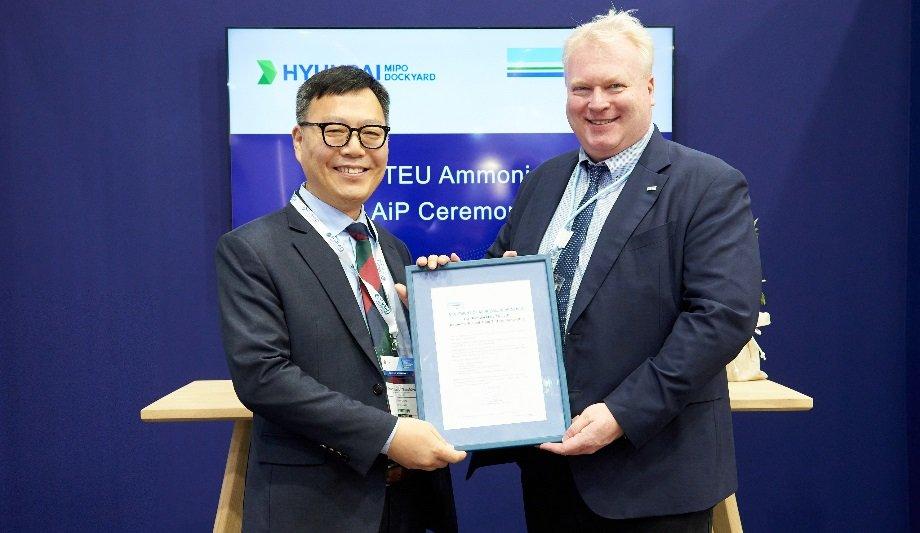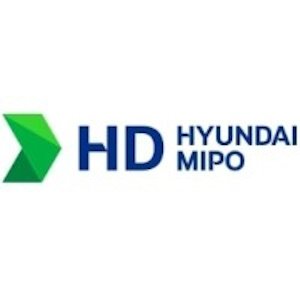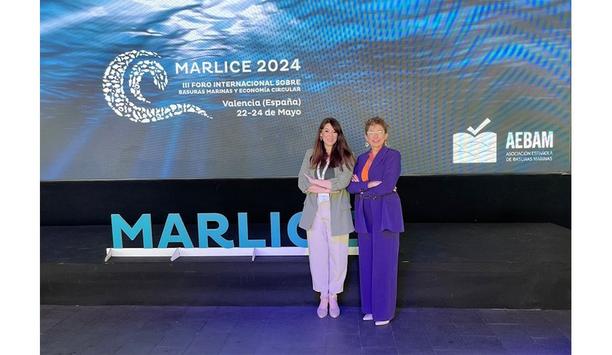At the Posidonia trade fair, classification society DNV awarded HD Hyundai Mipo an Approval in Principle (AiP) for the design of a new ammonia dual fuel feeder container vessel.
The AiP is the result of a collaborative effort between HD Hyundai Mipo, WinGD, HD Hyundai Heavy Industries, Kangrim Heavy Industries, and DNV.
Greenhouse gas reduction strategy
Ammonia continues to attract attention as a potential fuel for shipping as the industry steps up to tackle the International Maritime Organisation's (IMO) greenhouse gas reduction strategy.
When produced sustainably ammonia is a potential zero-carbon option but comes with several challenges, especially in terms of supply and the safety considerations required due to its toxicity.
Dual fuel technology
Dongjin-Lee, Head of the Initial Design Division of HD Hyundai Mipo said, "Ammonia fuel is important as a means to achieve the IMO's 2050 carbon emission net zero target, but its toxicity makes safety a top priority. HD Hyundai Mipo has successfully delivered various world-first dual-fuel propulsion ships, including LNG, LPG, and methanol-powered vessels."
"Through our proven experience with dual fuel technology, we have developed this ammonia-powered container ship to collaborate with partners. HD Hyundai Mipo has taken a significant step closer to ammonia-powered ships and the company is expected to lead a safer decarbonisation trend."
Ammonia-powered feeder container ship
The ship's ammonia fuel supply system and boiler are designed by HD Hyundai Heavy Industries
The ammonia-powered feeder container ship features an engine developed by WinGD, a Swiss-based company, and manufactured by HD Hyundai Heavy Industries.
The ship's ammonia fuel supply system and boiler are designed by HD Hyundai Heavy Industries and Kangrim Heavy Industries, respectively.
Video-based integrated safety control solution
To enhance the safety of the vessel, it utilises AI technologies to apply autonomous navigation and video-based integrated safety control solutions.
The video-based integrated safety control solution is a core technology for unmanned ships, featuring a real-time situation analysis and prediction system through CCTV monitoring of all hazardous areas on the vessel. The ship also features a Type C fuel tank to minimise the risk of leakage.
Sustainable fuel option
Vidar Dolonen, Regional Manager Korea & Japan at DNV Maritime, commented on the achievement, "We are honoured to be part of this innovative group of partners, who are looking to build confidence and offer maritime stakeholders another sustainable fuel option."
"This AIP is another step towards the broader adoption of low-carbon ammonia-powered vessels, extending their application to container feeder ships and reinforcing our shared commitment to a greener maritime future." An Approval in Principle (AiP) is an independent assessment of a concept within an agreed framework, confirming that the design is feasible, and no significant obstacles exist to prevent the concept from being realised.












